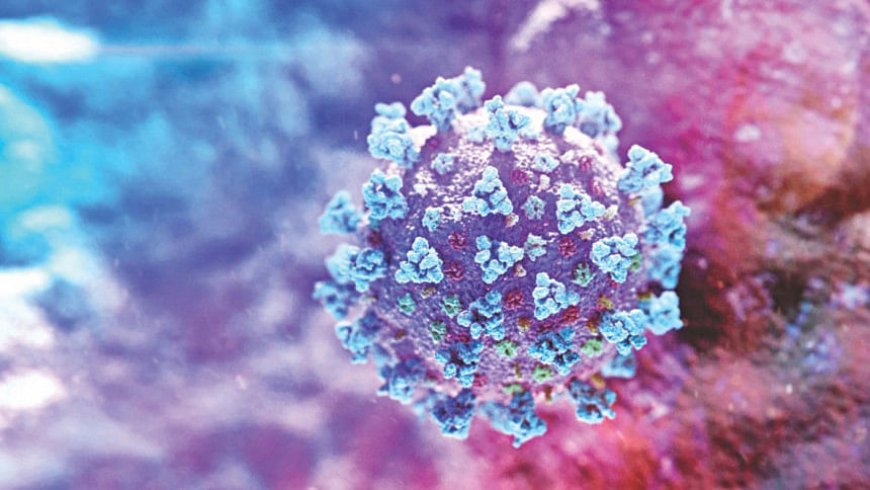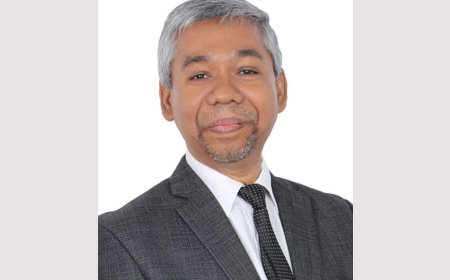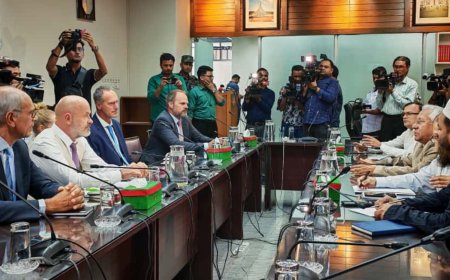Government to broaden Covid-19 testing infrastructure
Urges public to wear masks amid rising Covid-19 cases.

Govt Ramps Up Covid-19 Testing Amid Case Surge
In response to a sharp rise in Covid-19 cases in Bangladesh and neighbouring countries, health authorities are working to expand testing facilities at major hospitals over the next 10 days.
Currently, only a few government hospitals conduct Covid-19 tests. However, the move to expand testing follows a 29-month high infection rate last month and a Covid-related death on June 5 after a long gap.
According to the Directorate General of Health Services (DGHS), 13 people tested positive out of 101 samples in the past 24 hours. Surveillance data from the Institute of Epidemiology, Disease Control and Research (IEDCR) shows a 9.51% positivity rate in May, the highest since January 2023.
The icddr,b also confirmed a noticeable rise in cases in May but noted there is no major cause for alarm at this stage, emphasizing the importance of standard preventive measures.
Two new Omicron subvariants – XFG and XFC – were detected for the first time in April at Chattogram Medical College Hospital, according to a joint surveillance study by icddr,b and IEDCR. These variants accounted for around 7% of patients in the study, a significant increase compared to earlier this year when positivity rates were near zero.
DGHS Line Director of Communicable Disease Control, Prof Halimur Rashid, said all medical facilities with RT-PCR labs have been instructed to prepare for testing. Locally available test kits are being sourced, and the Central Medical Stores Depot has been tasked with procuring additional kits from abroad.
“We expect to restart testing within 10 days, though initially on a limited scale,” he said. Testing will begin at medical colleges and district hospitals with RT-PCR capacity, focusing on symptomatic patients or those referred by doctors. The scope may be expanded if the situation worsens.
Meanwhile, the DGHS has issued directives to strengthen screening at all land, river, and air entry points to curb the spread of new variants—particularly Omicron LF.7, XFG, JN.1, and NB.1.8.1—already found in neighbouring countries including India.
Instructions include the use of thermal scanners or non-contact digital thermometers, adequate stockpiling of masks, gloves, and PPE, and the promotion of preventive guidelines to raise public awareness.
The DGHS has also advised the public to avoid non-essential travel to India and other affected countries.
On June 6, the health ministry issued a directive encouraging mask usage. Bangladesh Railway and metro rail authorities have also urged passengers to wear masks.
Additional health advisories include washing hands with soap for at least 23 seconds, using masks to cover the nose and mouth, maintaining a minimum distance of three feet from sick individuals, and avoiding contact with the face using unwashed hands. People are advised to cover their mouth and nose when sneezing or coughing and to stay home if sick.
Severely ill patients should seek treatment at the nearest hospital, or contact the IEDCR hotline at 01401-196293 if necessary.
Bangladesh reported its first Covid-19 case on March 8, 2020, and the first death 10 days later. Since then, the country has recorded over 2.05 million cases and 29,499 deaths, with 2021 being the most fatal year.
What's Your Reaction?






















































































